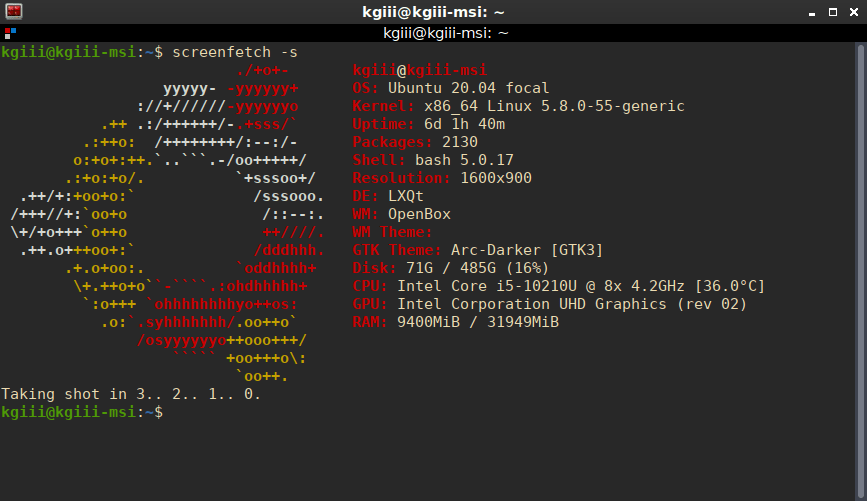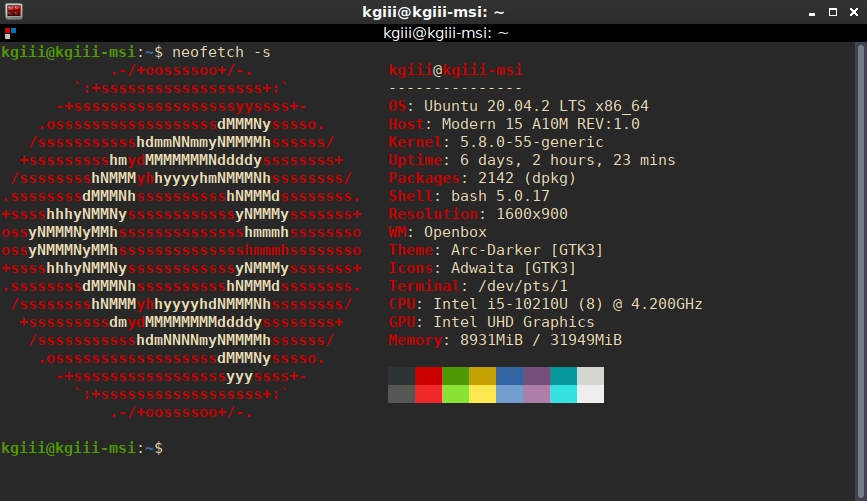It goes without saying that I’m a pretty big Lubuntu fan. The reason it goes without saying is because (as anyone that knows me knows) I have said it plenty of times already! This ‘award’, becoming an official Lubuntu Member, is recognition for past activity in the Linux (specifically in the Lubuntu/Ubuntu sphere) community.
My application was voted on and approved on the 14th of November, so just a few days before you saw this. I actually missed the email notification (just an automated message informing me that I’d been added to a group) and didn’t notice until the congratulations started pouring in. I’ve since received guidance from my mentor, thankfully.
If you don’t know what it means (and what responsibilities you have) to be an official Lubuntu Member, you can learn more about the Membership by clicking this link. There’s more to it and I’ve not yet gone through all the benefits, but I’m pretty happy to have been voted into a rather exclusive club.
Darned right! Not a whole lot of people on the planet can say they’ve been official Ubuntu Members! I guess there are ‘more than 500’ of us currently, which is still a tiny drop in the ocean that is Linux users and the general population at large!
So, yes… Yes, it does make me happy to be a member. The recognition is nice and it’s comfortable to say ‘my peers’ – even though they all pretty much know so much more than I do.
My Lubuntu History:
You should probably start by reading my article here:
What it’s Like To Beta-test Linux, Specifically Lubuntu
That’ll give you most of the information you might need.
Anyhow, Lubuntu has been around since its official recognition in 2011. I’ve been using it nearly as long, as I was really happy to have an Ubuntu official-flavor with LXDE – my preferred desktop at the time. I dare say that it’s still kinda my official favorite DE, but I really have grown to like LXQt. It grows on you in time and is maturing nicely.
About 14 months ago… You know, it’ll take a minute, but let’s get some numbers for posterity!
Alright, it began officially in October of 2020, when I said the following:
I have some free time coming up. I can toss some hours at this, but not for this release. Do you want testing on bare metal, or is testing in a VM adequate? Is the #Lubuntu IRC the place to go?
Which is the official start of my testing – so to speak. I jumped in just a little while later that month, after 20.10 was released. That means 21.04 was my first full-cycle participation. We’re now testing 22.04 and watching the changes has been informative and interesting.
One of my continued goals has been to learn more while helping. And, man… Did I learn a lot. I’m still learning a lot, and I now have a much better understanding of how Linux works behind the scenes. My troubleshooting abilities have increased because of it. I highly encourage others to get involved. Jump in at the deep end. The immersion helps!
My Lubuntu Future:
After the first cycle, I was actually able to (and was heavily encouraged to do so) apply for official membership. I decided to not apply at that time and to give myself a additional cycle before applying. It seemed prudent to make sure that I was really going to keep helping.
Sure, the membership is about past contributions but, to me, it implies a level of commitment to future contributions. I plan on keeping on doing what I’ve been doing for the duration. I plan on continuing my education and stepping up to help with the tasks I am able to complete.
Man… It does feel nice to say ‘my peers’, but so many of them know so much more about Linux than I do. I am not even a programmer, at least not a very good one – and time doesn’t seem to be improving that ’cause I don’t have time to learn more. So, I definitely have a bit of that Impostor Syndrome going on.
Just reading the #lubuntu_dev chat has been super informative. Fortunately, I can jump in at any time and ask questions. They’ll help me understand, and point me towards additional educational resources. Everyone I could hope for stood up to help me get my feet on the ground and become a better tester.
It probably doesn’t need saying, but the people in and around the Lubuntu project are pretty awesome. Without them, I’d not be here – of course. I’ve spent a goodly number of years in academia, and it’s comforting to be able to surround myself with the smart people that make up the Lubuntu project.
My contributions elsewhere probably won’t change. I’ve been able to, and fortunate enough to, manage my time – and I’ve been able to set aside blocks of time for different tasks. So, I suspect this means I’m just going to keep doing what I’m doing for the foreseeable future.
This also bodes well for the site. If I’m doing what I have been doing, that includes keeping this site active, interesting, and regularly updated with new content. I might as well… If I still have stuff to write about, I might just as well keep writing.
Still, this isn’t set in stone. This site eats a ton of my time. I’m still only planning on a full year – but it seems likely that I’ll just keep pounding the keyboard while hoping an article pops out the other side. It has been a pretty good run so far.
Closure:
For the record: I sure as heck didn’t get here by myself. In fact, if it wasn’t for the many, many positive messages and prompting me to apply, I probably still wouldn’t have applied. I don’t think I’d have felt qualified, if it hadn’t been for the urging.
The two members I’d like to thank the most for that aspect are Leok and guiverc. Of the two, I consider guiverc to be my mentor. I’m pretty sure there is an official title of “Mentor” in and among the official members. I don’t think guiverc really holds that title, but they have put up with my many questions and given me great guidance over the past year.
So, I’d like to thank especially both Leok and guiverc, as well as all the other members who have encouraged me, educated me, or just plain tolerated me when I asked questions. I told ’em back at the start that I’d do my best to make sure their time spent helping me learn would not end up as wasted time, and I’d like to think I’ve demonstrated that and made true on my claim.
To the rest of the well-wishing folks, thanks! You too have likely given me reason to keep going with this, in one way or another. Just reading the site is helping to motivate me to continue learning and publishing. Also, please feel free to leave any congratulatory comments here on this site, avoiding leaving them across the various sites.
As always, thanks for reading! If you want to help, or if the site has helped you, you can donate, register to help, write an article, or buy inexpensive hosting to start your own site. If you scroll down, you can sign up for the newsletter, vote for the article, and comment.

